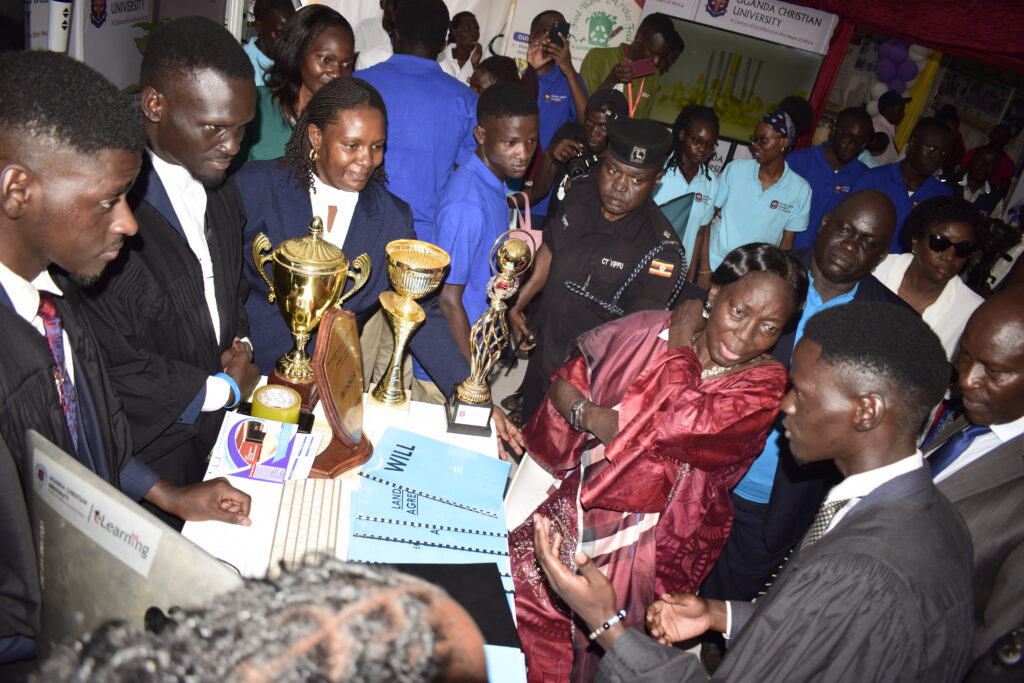By: Geoffrey Ssenoga
Universities driving national economies is evident wherever they are. A BBC documentary in March 2024 informed that foreign university students in the UK pay 30,000 pounds every year for their tuition, while British students pay 9,000 pounds. University education makes a great contribution to its economy, just like in the USA, France, and other Western world national economies. Oxford, Cambridge, Massachusetts, Princeton, our own Makerere, and UCU, to mention a few, have spawned cities in their locations. And cities are economic metropoles.
All cities in Uganda now have a university, and that is why the National Council for Higher Education’s (NCHE) decision to rotate its annual conference on higher Higher Education and its public display of what tertiary institutions do is a wise one.
The inaugural regional higher education exhibition by the National Council for Higher Education held on March 20–23 brought more color, money and knowledge to Mbale City. Over 52 universities countrywide brought teams to exhibit knowledge and skills under the NCHE theme “employability and innovations.”.
Mbale officially became a city in 2021, but it was a city much earlier (there was contemplation of transferring the capital of Uganda to Mbale, as rumour has it). Mbale is a metropolis and a cosmopolis. It is 24/7 operational, servicing hinterland cities and municipalities such as Soroti, Lira, Tororo, Busia, Iganga, and Moroto. At one time, it was the regional capital for eastern Uganda; its positioning at the border with Kenya further fertilized its city credentials. Here, one can go about speaking English, Kiswahili, and Uganda’s lingua francas in tandem with the local Lumasaba language. It is a fascinating tourist destination, with the Mt. Elgon heights, Imbalu masquerades, and local bamboo shoot food delicacy (Kamalewa) on the to-do list of Ugandan tourism.

UCU‘s Borodi Bill Dan interviewed the mayor of Mbale city, Mr. Kassim Namugali, at the UCU School of Journalism Media exhibition stand for UCU Focus TV and shared the video clip with popular Kampala Radio’s Capital Gang program host, Oskar Semweya Musoke, who immediately summoned him to the radio show on Saturday, March 30th. Reason? His worship had lots of questions and ideas for employability and innovations, not only for Mbale city residents but for the country too. Youthful Borodi Bill Dan asked the pertinent questions too: how do universities get “our millions of young people” to find employment in order to drive up the country’s economy? Capital Radio’s Capital Gang thus projects critical debate on this issue onto the national fora.
The National Council for Higher Education’s director of ICT research and innovation, Dr. Nora Kasirye Mulira, called upon universities and communities to embrace science and technology, which is now driving innovations globally. She cited ChatGPT, which is all the rage amongst students who use it to answer questions and answer their course work. How can it be used to interrogate and expand knowledge rather than fueling spoon-feeding, cramming, and plagiarism amongst students?
Mbale residents who are basking in their tropical leisure may not know, for example, that one can produce and broadcast a Manchester United vs. Arsenal football derby without a television crew on the ground, thanks to AI technology, as New Vision’s Kalungi Kabuye forecast in an article on the looming threats and advantages of this technology as a life-changing phenomenon.
This is a challenge for those seeking employment as TV journalists, as their jobs are taken up by machines. On the other hand, the employer finds that AI quickens things, ensures consistency, is cost-effective, and saves one from the human resource labyrinths of management.
This makes it attractive to those starting up and managing companies that drive up countries investment portfolios. It also opens up job opportunities in different areas. Dr. Kasirye Mulira cited Sweden, where engineers are highly sought after. But for every engineer employed, there are ten social workers employed to serve the social aspects of the community. One can never replace the human element completely.

Mbale is now implementing an infrastructure development project to improve its roads, solid and liquid waste management systems, and drainage at a cost of over 14 billion shillings.
AI can help in efficient city planning, management, and regulation of his projects, but how can it be harnessed to create more jobs and drive up national economies?
This explains why UCU’s Technology, Agriculture, and Law stands had busy traffic with exhibitors answering questions as to what innovations are available to assist communities such as Mbale City to drive up the development and employment of its people sustainably and legally.


